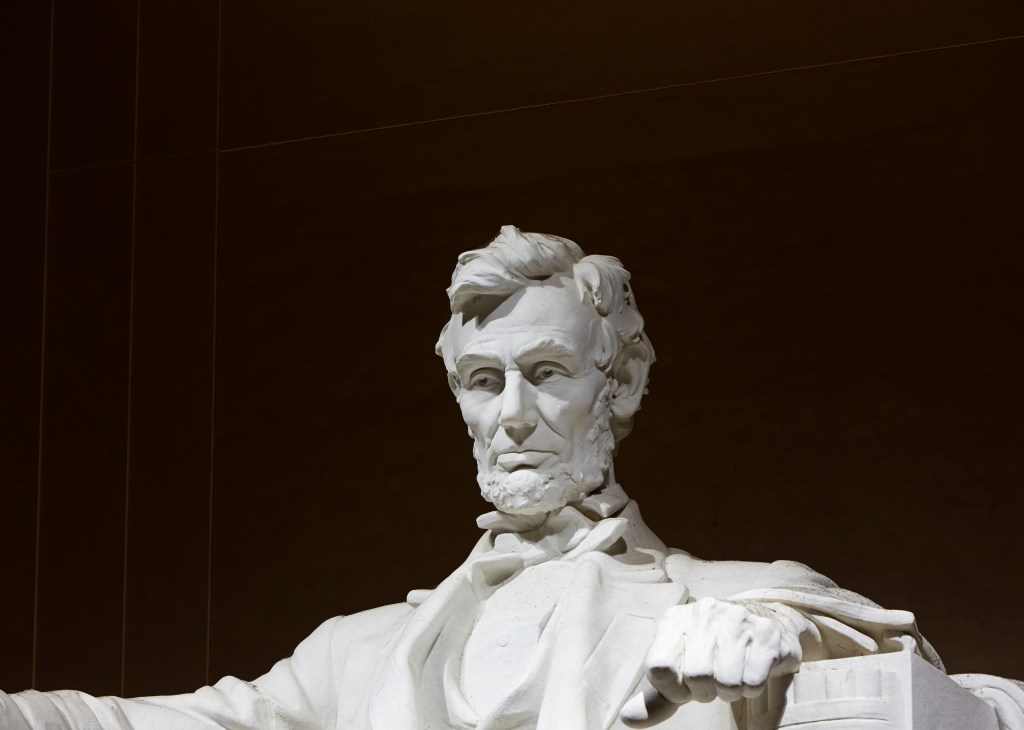A Republican legislator in Virginia filed an anti-critical race theory bill that contained a glaring error, saying Abraham Lincoln debated the formerly enslaved abolitionist Frederick Douglass, drawing widespread mockery for mixing up Douglass with the 19th century pro-slavery politician Stephen Douglas.
But on Friday, the state’s nonpartisan legislative research staff said that it was responsible for the mistake.
Videos by VICE
A bill filed this week by Virginia Del. Wren Williams mirrored other anti-CRT laws and bills around the country by banning the teaching of “divisive concepts” in the classroom. While conservatives maintain that such legislation is meant to ensure kids aren’t taught they’re “inherently racist, sexist, or oppressive,” as the bill says, in practice, the nationwide anti-CRT push from the right has led to, among other things, censoring books by Black and LGBTQ authors.
Instead of “divisive concepts,” the new legislation instructs that all social studies students should be taught standard civics concepts and history that is taught in most schools around the country, such as the Constitution, Declaration of Independence, and the Federalist Papers.
But the bill also required students to learn about “the first debate between Abraham Lincoln and Frederick Douglass.” Frederick Douglass was a Black abolitionist and one of the most important political figures of the 19th century, and Lincoln never debated him.
He did, however, debate pro-slavery Democrat Stephen Douglas seven times in 1858, as the two vied for a U.S. Senate seat. Douglas later ran against Lincoln for the presidency in 1860, and lost.
Frederick Douglass did not ever publicly debate Lincoln, only meeting with him well after Lincoln was already president, the Civil War had begun, and Douglass—who had escaped from slavery—was recruiting Black soldiers for the Union Army.
The bill was widely mocked for its historical inaccuracy.
But on Friday, Virginia’s Division of Legislative Services — which drafts bills and provides “both legal and research staff support to all legislators and standing committees of both houses of the General Assembly” — said it was responsible for the “historical error.”
“The erroneous citation of Frederick Douglass, in relation to the Lincoln-Douglas debates between Abraham Lincoln and Stephen Douglas, was inserted at the drafting level, following receipt of a historically accurate receipt from the office of Delegate Wren Williams,” the DLS said in a statement provided to VICE News.
Williams’ office provided the conservative blog Town Hall with a statement as well as the original language that was in the bill, which refers only to the “first Lincoln-Douglas debate.”
Once the bill is drafted, however, it’s not immediately filed. Rather, it’s sent to the delegate, who signs their name to the bill and formally introduces it, according to Virginia General Assembly procedure. Williams’ legislative aide Addison Merryman told VICE News Friday that it’s “unprecedented for Legislative Services to make substantive changes to bills, and there was no reason to expect that they would do so.”
“Of course I’m frustrated this happened. I have a very high standard for my office, and my service to my constituents and the Commonwealth,” Williams told Town Hall. “But I realize that mistakes happen. I trust this was an honest mistake, and I don’t hold it against Legislative Services.”
Virginia’s Republican Governor-elect Glenn Youngkin, who will be sworn in this weekend, made education and critical race theory the centerpiece of his successful campaign against former Democratic Gov. Terry McAuliffe. When Youngkin won, he swept Republicans back into power in the House of Delegates. Democrats still hold a slim majority in the State Senate, however, so any bill targeting critical race theory has an uphill climb to passage.
Williams prioritized tackling “critical race theory” while he was still campaigning. In June, Williams vowed that his first bill would ban the teaching of critical race theory as well as the New York Times’ 1619 Project.
“Our universities, liberal activists and politicians are raising our children to believe that America is an evil country and their fellow classmates are perpetrators of America’s sins,” Williams said at the time.”
Update: This story has been updated to reflect the Virginia Division of Legislative Services taking responsibility for the error.
Want the best of VICE News straight to your inbox? Sign up here.
More
From VICE
-

PHOTO CREDIT: VINCENT GUGLIELMO -

Photo by Arturo Holmes/Getty Images for Live Nation -

Lemieux et Cie / Etsy / WMS&CO -

SCHEESSEL, GERMANY – JUNE 22: Brendan Yates of the band Turnstile performs on stage during Day 2 of Hurricane Festival 2024 at Eichenring on June 22, 2024 in Scheessel, Germany. (Photo by Matt Jelonek/Getty Images)
